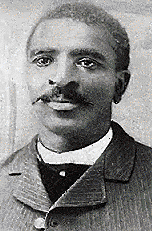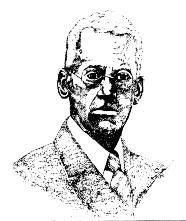Engineering in Society
We've been talking about how engineering
education
has
changed
Now I want to ask more broadly how changes in
society
have led to changes in engineering
different ways of looking at
the
relationship between society and technology:
- problem of the two
cultures
- impact of technology on
society: for example, new technology results in changes in
society
- influence of society on
technology--everything from education to consumer/public
preferences
- public attitudes towards
technology
- complex interactions
between society and technology
I have picked two examples:
- regulation
- affirmative action
 regulation of technology:
regulation of technology:
what has shaped the history of regulation?
- The traditional belief was that ordinary
people
could
and should watch out for themselves (buyer beware), but as
consumer
goods
came to be made far away instead of locally and technology
became more
complex that didn't work so well any more.
- employees had no right to compensation
for
accidents from
their employers because of a legal principle called "fellow
servant"
- The progressive movement around 1900 led
to
the
first
regulations. Anti-trust regulations around 1900 and
the Pure Food
and Drug Act (1906). Workers compensation started in
the 1910s.
- Concern about the environment in the
1960s
and
1970s led
to a new set of regulations, primarily to control pollution
- Businesses are also regulated, in effect,
by
what the
courts hold them responsible for. Product liability
has grown to
be more of an issue because of changing social values (the
decisions of
juries). But don't jump to use the lawsuit about hot
coffee
at McDonalds as an example.
What is the impact of regulation?
- red tape makes it harder to do things,
but
automotive
engineers say how much fun they had when the government
mandated
increased
fuel efficiency and so the manufacturers were willing to
invest in more
innovation
- how do you draw the line of how safe is
safe
enough?
Florman (ch. 7) says regulation is a good thing
- as technology becomes more complex we
can't
protect ourselves
- some areas of harm (eg. pollution) cause
costs
that the
businesses that do harm wouldn't have to pay
- regulation prevents the situation where
the
businesses
that try to act more responsibility go bankrupt because they
can't
compete
with the ones willing to cut corners.
- liability, not regulation, is the problem
area.
Tort law has a life of its own--negligence no longer has to
be proved
Affirmative action (women and minorities)
The first female member of the American Society
of
Mechanical Engineers was elected in 1914: Kate Gleason
(1865-1933)
attended
Cornell for a year in the 1880s and became “world famous for her
original
design of worm gears” working for a firm founded by her
father.

Ellen
Swallow Richards
The first female member of the American Institute
of
Mining
Engineers (in 1875) was Ellen Swallow Richards (1842-), who took
the
courses
for a chemistry degree at MIT (she wanted engineering, but
chemistry
looked
to be more accepting of women--finishing in 1873) though they
would
give
her only special status. In 1876 she was asked to
establish a
woman's
laboratory at MIT (which had other women wanting to study
there).
By 1882 women were being admitted as regular students at MIT
so
the
separate laboratory was abolished and she became an instructor
in
sanitary
chemistry. She taught courses at sanitary engineering at
MIT and
is also seen as a founder of home economics for her work on
water and
food
safety.
Some other early women engineers and inventors:
Lillian
Gilbreth
Kate
Gleason
Mary Kies
Emily
Roebling
Technology and African Americans

George
Washington Carver (image
source)
George Washington Carver was born a slave about
1860.
He decided to seek an education and was able to work his way
through
high
school. He searched for a college that would accept him,
and
finally
found a small college in Iowa (enrolling at the age of 30), from
which
he transferred to Iowa State College of Agriculture in
1891. He
earned
a masters degree in bacterial botany and agriculture and was
hired for
a faculty post. He wanted to do more to help his own
people, so
he
took a job at the Tuskegee Institute in 1896. There he
promoted
the
growing of peanuts, sweet potatoes, and soybeans instead of just
cotton,
and researched new
uses for these crops to expand the market (particularly during
the
Depression--he died in 1943).

Lewis
Latimer
Lewis
Latimer was born (1848-1928) to parents who had escaped
from
slavery
to Boston in 1842; he served in the Union Army during the civil
war.
After the war he got a job as an office boy in a
patent-attorney's firm
and got interested in pursuing a career in technology. He
watched
the draftsmen and practiced on his own, and his employer was
willing to
let him move up to work as a draftsman (though the white
draftsmen at
that
level of skill earned $25 a week and Lattimer earned $20).
He was
a contemporary of Thomas Edison, equally self taught, and also
an
inventor,
but he did not have access to capital to set up a new business
and make
money off his inventions. He patented a number of
inventions--first
a toilet for railroad cars with a closed-bottom hopper instead
of an
open-bottom
("the annoyance from dust, cinders and other matters thrown up
from the
track..."). He worked for a number of electric lighting
firms,
inventing
and improving system and sometimes supervising installation
crews.
In 1884 he went to work for Edison's company as a
draftsman-engineer,
where
he stayed for the rest of his career, mostly working on patent
issues
and
also writing a book on the Edison system of incandescent
light. He
had about a dozen patents, some electrical and some
various. He
both
expected to be accepted in the white world, where he
participated in
things
like local scientific societies and the Unitarian Church, and
also
sought
to help his people, working with a number of organizations of
African-Americans.
Some other early African-American engineers and
inventors:
Archibald
Alexander
Andrew
Beard
Otis
Boykin
David
Crosthwait
Shirley
Ann
Jackson
Frederick
Jones
Joseph
Lee
Frederick
Massiah
Jan
Matzeliger
Elijah
McCoy
Garrett
Morgan
John
Parker
Norbert
Rillieux
C.
J. Walker
Granville
T. Woods
In more recent years women and minorities have
been
able to fit in, rather than stand out. Florman argues that
women
should bring different values--a difficult issue.
an
amusing talk giving advice to women engineers
- two approaches--equal opportunity or
valuing
differences
- the danger of stereotypes
- A study of the culture of engineering
describes
a “technical
locker room” style in young high-tech companies, in which
women feel
very
uncomfortable. They contrast this with more
bureaucratic firms in
which women fare better. Judith S. McIlwee
and
J.
Gregg Robinson, Women in Engineering: Gender, Power, and
Work Place
Culture (State University of New York Press, 1992).
Quotes of the day:
"It is easier to beg for forgiveness than to ask for
permission."
- Adm. Grace Murray Hopper, pioneer computer scientist who
became a
rear admiral in the Navy
"No individual has any right to come into the world and go out
of it
without leaving behind him distinct and legitimate reasons for
having
passed through it."
- George Washington Carver, Inventor (1864-1943)
this page written and copyright Pamela E. Mack
last updated 9/7/2005




